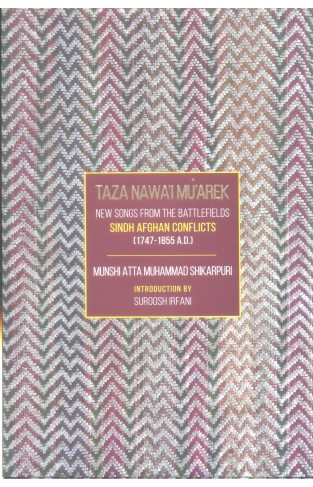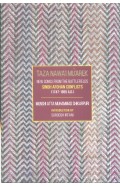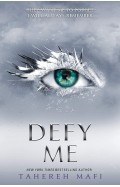Taza Nawa’i Mu’arek
By: Munshi Attaullah Shikarpuri
-
Rs 1,700.00
- Rs 2,000.00
- 15%
You save Rs 300.00.
Due to constant currency fluctuation, prices are subject to change with or without notice.
At regular intervals in the book, the British receive criticism for their non-Muslim religious affiliations. The religious morality, duty, importance of valour and courage, etc are invoked throughout and excerpts from the Shahnameh — the Persian epic of Ferdowsi — or the Masnavi of Jalaluddin Rumi aid these sentiments.
There are two main points here; one, on the battles the book must evoke these sentiments and use all the tools at its disposal, may it be verses from the Holy Quran or the epics that talk of valour of the heroes celebrated and long gone.
Second, it points to the literary grasp and erudition of the author. Taza Nawa’i Mu’arek provides a glimpse of a past that was multilingual, multi-ethnic and multi-religious. One comes across mention of Uzbeks and Tajiks, Afghans, Baloch and Sindhis, the Rohillas and the Sikhs all co-existing, albeit waging territorial wars.
The exploits of the wars narrated throughout speak of material possessions in gold and silver, gems — Shah Shuja had to let go of the (in)famous Koh-i-Noor diamond, giving it to Ranjit Singh in order to buy his safe exit to Ludhiana — and daggers of supreme quality, of ivory and silk and of lavish feasts where an array of delicacies were served.
At regular intervals in the book, the British receive criticism for their non-Muslim religious affiliations. The religious morality, duty, importance of valour and courage, etc are invoked throughout and excerpts from the Shahnameh — the Persian epic of Ferdowsi — or the Masnavi of Jalaluddin Rumi aid these sentiments.
There are two main points here; one, on the battles the book must evoke these sentiments and use all the tools at its disposal, may it be verses from the Holy Quran or the epics that talk of valour of the heroes celebrated and long gone.
Second, it points to the literary grasp and erudition of the author. Taza Nawa’i Mu’arek provides a glimpse of a past that was multilingual, multi-ethnic and multi-religious. One comes across mention of Uzbeks and Tajiks, Afghans, Baloch and Sindhis, the Rohillas and the Sikhs all co-existing, albeit waging territorial wars.
The exploits of the wars narrated throughout speak of material possessions in gold and silver, gems — Shah Shuja had to let go of the (in)famous Koh-i-Noor diamond, giving it to Ranjit Singh in order to buy his safe exit to Ludhiana — and daggers of supreme quality, of ivory and silk and of lavish feasts where an array of delicacies were served.
Zubin Mehta: A Musical Journey (An Authorized Biography)
By: VOID - Bakhtiar K. Dadabhoy
Rs 892.50 Rs 1,050.00 Ex Tax :Rs 892.50
The Origins of Political Order From Prehuman Times to the French RevolutioN
By: Francis Fukuyama
Rs 4,045.50 Rs 4,495.00 Ex Tax :Rs 4,045.50
Manning Up: How the Rise of Women Has Turned Men into Boys
By: Kay Hymowitz
Rs 845.75 Rs 995.00 Ex Tax :Rs 845.75
The Obama Syndrome: Surrender At Home War Abroad
By: Tariq Ali
Rs 1,100.75 Rs 1,295.00 Ex Tax :Rs 1,100.75
The Quest For Meaning: Developing A Philosophy Of Pluralism
By: Tariq Ramadan
Rs 1,185.75 Rs 1,395.00 Ex Tax :Rs 1,185.75
The Pakistan US Conundrum Jihadists The Military And The People The Struggle For Control
By: Yunas Samad
Rs 1,185.75 Rs 1,395.00 Ex Tax :Rs 1,185.75
An Enemy We Created: The Myth Of The Taliban Al Qaeda Merger In Afghanistan 19702010
By: Alex Strick van Linschoten
Rs 4,197.50 Rs 8,395.00 Ex Tax :Rs 4,197.50
WikiLeaks: Inside Julian Assanges War on Secrecy
By: David Leigh & Luke Harding
Rs 637.50 Rs 850.00 Ex Tax :Rs 637.50
No similar books from this author available at the moment.
Zubin Mehta: A Musical Journey (An Authorized Biography)
By: VOID - Bakhtiar K. Dadabhoy
Rs 892.50 Rs 1,050.00 Ex Tax :Rs 892.50














-120x187.jpg?q6)





-120x187.jpg?q6)



-120x187.jpg?q6)




